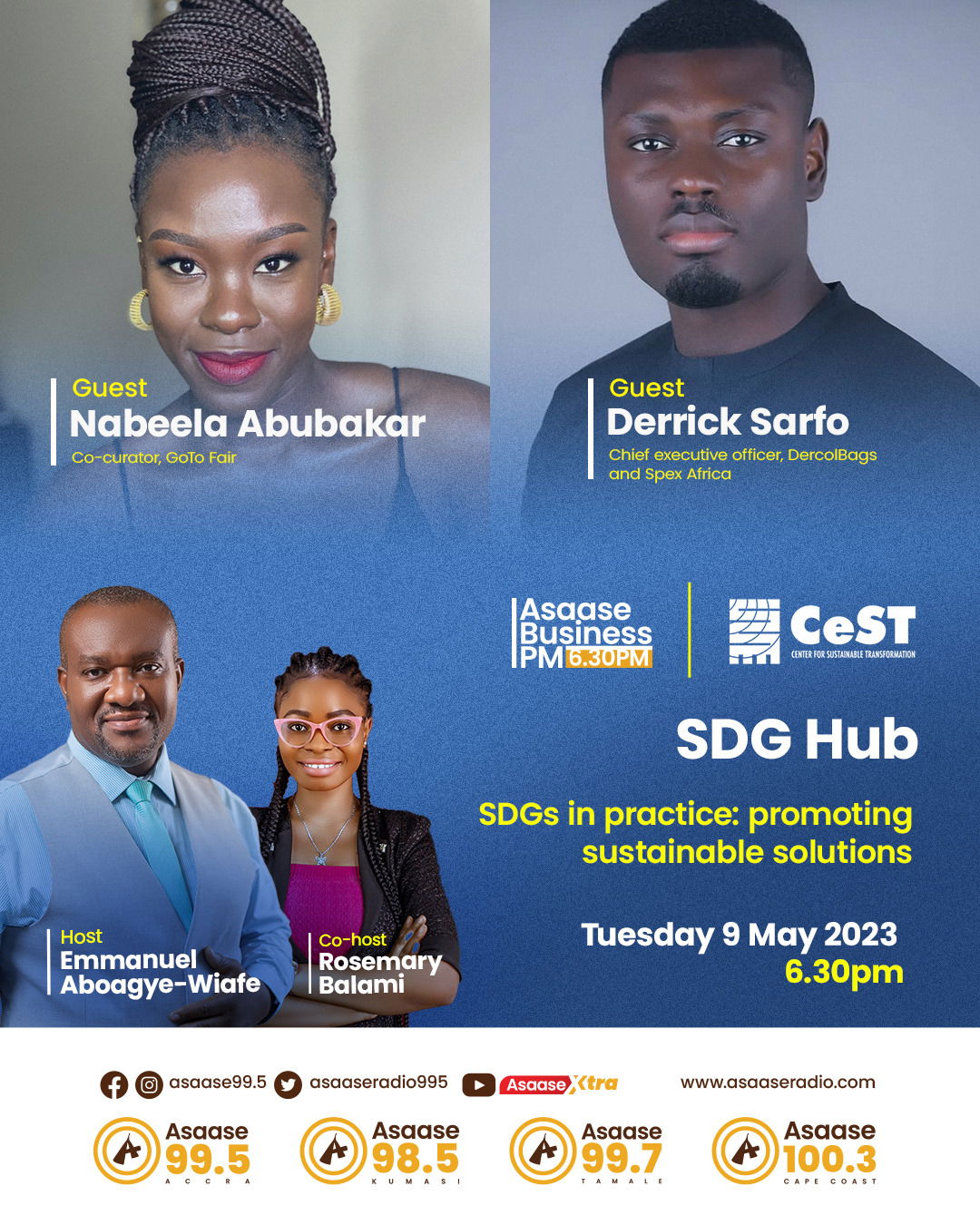
Article By: Akumun Emmanuel
Ghana’s efforts to promote sustainable solutions towards achieving SDG 12 - responsible consumption and production which is about promoting sustainable use of our resources, reducing waste, minimizing the use of non-renewable resources and ensuring that products are designed to last, recycled and reused is gaining momentum.
In Ghana, the main areas of concern in relation to SDG 12 include the over-reliance on single-use plastics and inadequate waste management systems. However, only a few stakeholders like civil society organizations, and the private sector, mostly small businesses and startups, are taking action to address these issues.
Speaking with Nabeela Abubakar who guested this week's episode of The SDG Hub on “SDGs in Practice: Promoting Sustainable Solutions”, she opined that the first step towards promoting sustainable solutions she believes, would be to bring together actors in the sustainable solutions space, which is what her team at GoTo Fair are trying to do. She added that:
When you look at the Ghanaian ecosystem, you think about something where you ask yourself today, if we ban the import of a good number of stuff we import, could we be self-sufficient? The answer is no. So when it comes to a local playing scene, I think if anything, because one thing is also that our business scene is sort of unfriendly to startups, to small businesses where you almost see that they are unable to scale up. Now that reality is there where we should be trying to scale up and play on the international field. Cause research also shows that access to the international free market is going to help make some 17 million people a thousand dollars richer. That's a good step in eradicating poverty. Whilst we are waiting and working for that to happen, there's a need for us to build capacity inwards. If we say go local, okay, I'm going local. Where are the alternatives? So that is why we need to continue to empower local businesses to continue to grow.
The private sector in Ghana is also playing a crucial role in promoting responsible consumption and production. A number of companies have adopted sustainable business practices such as reducing waste as revealed by Derrick Sarfo who was also a guest on the program. Some companies are also implementing circular economy approaches, which involves recycling and repurposing materials to reduce waste. In his words:
So what we do as a business at Spex Africa is that we provide restaurants and food vendors with packages that are returnable, that are eco-friendly, and then when consumers buy from our platform, they receive their food in sustainable and returnable packages free from single-use plastics. So that is what we do as a business.
On some of the challenges that actors face when they try to promote sustainable solutions, Nabeela was of the view that funding and capital are a major challenge in promoting sustainable solutions especially for sustainable entrepreneurs. In her words:
I think number one would be access to capital and this is just common knowledge. The raw materials are here. But if you are trying to scale up your skincare products and need packaging, there are no eco-friendly packages here for that. So you have to source for packaging from all over the world like on Alibaba. So by the time it all comes back, the price is heightened. If the price is heightened, it means that the average person cannot afford it, which in a sense makes it unsustainable. But sustainability really leans towards equity, fairness, and, and access.
The promotion of responsible consumption and production is crucial to achieving sustainable development in Ghana. Civil society and non-governmental organizations and the private sector are all taking action towards this goal, but the government has to step in as it has a bigger role to play, especially in terms of the implementation of a national policy on single-use plastics or even completely banning its usage. On this, Derrick’s reaction was:
Recently I was in Kenya, and Kenya has banned single-use plastics, and it makes it easy for investors to invest in businesses that will develop alternative solutions. Because the public is aware that we don't use or accept single use plastics. But we don't have that in our country. So it pushes investors away and discourages businesses that are developing solutions. So these are challenges businesses like myself and other colleagues I know are facing day in day out.